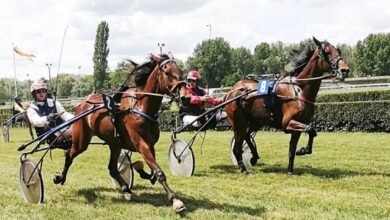From Pre-Game Rituals to Post-Game Recovery: Secrets of Professional Athletes

When you talk about every winning shot or game, there is an off-stage preparation that allows the success of a sportsperson. Professional athletes don’t only depend on talent, but they pay good attention to their routines and believe that this will lead them to achieve the maximum level of performance and also stay free from injuries. It can be expressed as an exact sequence of movements that range from getting ready for the game to subsequently recovering from it. In this article, we’re going to explain the key rituals that every high-performing athlete has in common.
Why Routines Matter in Sports
Every sport has its inseparable routines that are a necessary part of every sports activity and are especially important to its professional players. Routine is the link between practice and the actual game. It brings a certain kind of order to the chaos, making the process less complicated, helping soothe nerves, and making sure the athlete is both set physically and mentally.
Routine is key as it brings stability – something every sportsman needs. There are certain physical aspects that must always be part of the routine, particularly if an athlete is to avoid injury: stretching and warm-up. On the mental side, it is focus and confidence that routines foster clear-headedness and concentration, which are vital and enable the athlete to go into the game. Every professional athlete has his routines, so to say, ranging from Olympic winners to NBA professionals. So, what are these rituals and super performance methods? Let’s dig deeper.
Although, wait a minute. We are sure that all our readers love sports and cannot live without them. So, if you try to bet on sports through MelGet, you will be able to immerse yourself much more deeply in each aspect. After all, in order to make a well-thought-out bet, you need to know as much as possible. More variables – a greater chance of success. So, join this best platform and fully immerse yourself in sports today, and we will still move on to some methods of training athletes.
Pre-Game Warm-Up Strategies
Athletes cannot afford to skip a warm-up; it’s crucial. This aids the muscles in working efficiently so that there’s a low chance of an injury occurring, and one can maintain focus during the activity. Important warm-up techniques before any event include:
- Dynamic stretching: It helps to loosen up muscles and aids blood flow progression through leg swings and arm circles.
- Foam rolling: It helps relax tight points on the muscles and even helps warm them up.
- Agility drills: Getting muscles that enhance the body with the ability to coordinate swiftly, roping in experience while doing brisk footwork.
- Assignable skills of the sport: Some of the skills in a game, whether dribbling, shooting, or passing the ball during the game, can be practiced before to imitate the game.
If athletes follow a good warm-up protocol before they compete, they increase the chance of flaunting their skills without exposing themselves to injury. This allows fans to place bets via Mel Get without worrying about the game not going according to plan due to injury. After all, in recent years, the number of injuries has been decreasing, and perhaps very soon, almost everyone will forget about injuries!
Mental Preparation for Peak Focus
One might think that physical readiness is all that matters, but sometimes mental preparation is necessary, too. Professional sportspeople appreciate the importance of having a sharp mind if one hopes to perform to the best of one’s abilities. It is for this reason that mental conditioning is given due importance in their pre-game warm-up.
Before every match, players do several things, for instance, visualization, controlled breathing, or even positive self-talk to allay tension, increase self-belief, and, more importantly, improve concentration. Visualization is such a game-changer, as it helps the players rehearse how and when they will make their moves and places the player mentally in the right scenario. Deep breathing remedies anxiety, brings down the rate of respiration, and makes one focused. These mental habits help a player to feel calm and composed in various situations in the match, which can help determine whether they will emerge victorious or disgraced.
Fueling Up with the Right Nutrition
Food is fuel, so what a player eats can be a game-changer. In the moments before and during a match, the body needs to be energized with the ideal foodstuff to guarantee maximum performance and better recovery.
Athletes look for a proper ratio of carbohydrates for energy, proteins for muscle repair, and fats for energy. Foods with a high glycemic index, such as bananas or white rice, give a quick boost of energy before the start of a game. After the game, meals that are high in protein and healthy fats aid muscle recovery. What players eat is just as important as how much they eat. A good distribution of meals during the day is necessary to maintain constant energy during hard games.

Post-Game Recovery Practices
After the final whistle, post-game recovery is as significant as pre-game preparation. It’s while recovering that the body tries to replace the lost nutrients and the damaged muscles. Post-game recovery for professional athletes is critical as it enhances the rate of healing, decreases soreness, and aids in getting ready for their next performance. Some post-game recovery methods include:
- Stretching: Gentle static stretches enable the muscles to relax and minimize stiffness.
- Foam rolling: Self-myofascial release techniques decrease tightness and soreness in muscles.
- Protein-rich meals: Engaging in a meal that is rich in protein aids in muscle repair and rebuilding as well.
- Ice baths or contrast therapy: Hot and cold baths alternating can lower inflammation and increase blood circulation.
- Rest and sleep: The body heals and recovers most effectively during deep sleep, so rest is vital.
If players are able to apply a rounded recovery approach, they will be able to prepare their bodies for better and future competitions.
Building Habits for Long-Term Success
Game day rituals are not only featured on the day of the match; they’re also part of daily life. Everything matters; every little ritual, every warm-up, every cool-down, and even every mental exercise is invaluable for an athlete. A lot of people in the world are talented, but only a few of them become successful as they have the willpower to follow their routines. To be involved in sports for a long time, patience is key. For success, wanting is not enough; it’s also about building good habits that will let you succeed. Continue pressurizing yourself, continue improving your routines, and never settle for anything less than your best. Good habits are the basis for achieving great things. Are you prepared to form your own?





